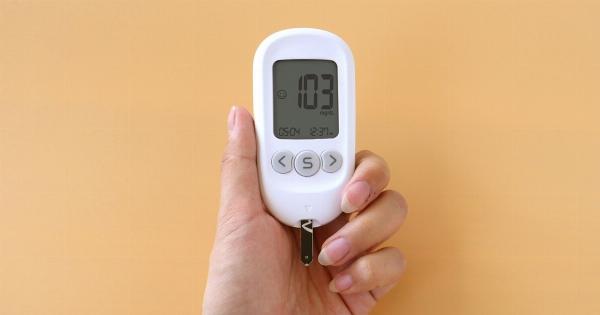High blood pressure, also known as hypertension, is a common health condition that affects millions of people worldwide. It occurs when the force of blood against the walls of the arteries is consistently too high.
If left uncontrolled, high blood pressure can lead to serious health complications such as heart disease, stroke, and kidney problems. While lifestyle modifications and medication are commonly recommended to manage high blood pressure, there are also natural remedies that can be beneficial in lowering blood pressure levels. One such remedy is garlic.
The Link Between Garlic and Blood Pressure
Garlic, a staple ingredient in many cuisines, has been recognized for its medicinal properties for centuries, particularly in traditional medicine practices like Ayurveda and Traditional Chinese Medicine.
In recent years, scientific research has also shed light on the potential benefits of garlic in reducing high blood pressure.
Several studies have found that garlic can help lower high blood pressure levels. The active compounds in garlic, particularly sulfur-containing compounds like allicin, have been shown to have anti-hypertensive effects.
Allicin is formed when garlic cloves are crushed, chopped, or chewed, and it is responsible for many of garlic’s health benefits.
How Does Garlic Lower Blood Pressure?
Garlic offers various mechanisms through which it can exert its blood pressure-lowering effects:.
1. Vasodilation
Garlic has been found to promote vasodilation, which is the widening and relaxation of blood vessels. This allows for easier blood flow and decreases the pressure on the arterial walls.
By relaxing the blood vessels, garlic helps to lower blood pressure levels.
2. Inhibition of Angiotensin II
Angiotensin II is a hormone that constricts blood vessels, increasing blood pressure. Garlic has been found to inhibit the production of angiotensin II, thus promoting relaxation of blood vessels and reducing blood pressure.
3. Antioxidant Properties
Garlic is rich in antioxidants, which help protect the body’s cells from damage caused by free radicals. Free radicals can contribute to high blood pressure by causing inflammation, oxidative stress, and damage to blood vessels.
Garlic’s antioxidant properties help combat these effects and reduce blood pressure.
4. Anti-inflammatory Effects
Chronic inflammation is linked to various health conditions, including high blood pressure. Garlic has anti-inflammatory properties that can help reduce inflammation in the body, including within the blood vessels.
By reducing inflammation, garlic can contribute to lower blood pressure levels.
5. Nitric Oxide Production
Nitric oxide is a molecule that plays a crucial role in relaxing and widening blood vessels. Garlic has been shown to stimulate the production of nitric oxide, thereby promoting better blood flow and lowering blood pressure.
How to Incorporate Garlic Into Your Diet
In order to reap the blood pressure-lowering benefits of garlic, it is important to incorporate it into your regular diet. Here are a few ideas on how to do so:.
1. Fresh or Raw Garlic
Eating fresh or raw garlic cloves is one of the most effective ways to obtain allicin and other beneficial compounds. You can mince or crush garlic cloves and add them to your dishes, sauces, dressings, or spreads.
2. Garlic Supplements
If you find it challenging to consume enough fresh garlic, you can consider taking garlic supplements. These are available in various forms, including capsules, tablets, and extracts.
However, it is important to consult with your healthcare provider before starting any supplements.
3. Roasted Garlic
Roasting garlic brings out a milder and sweeter flavor. You can roast whole garlic bulbs in the oven or on a stovetop until the cloves become soft and caramelized. Roasted garlic can be used as a spread, added to soups or sauces, or enjoyed on its own.
4. Garlic Powder or Granules
If you prefer a more convenient option, garlic powder or granules can be added to various dishes. They can enhance the flavor of soups, stews, marinades, and seasoning blends.
Precautions and Considerations
While garlic offers potential benefits in lowering blood pressure, it’s essential to keep a few considerations in mind:.
1. Consult Your Healthcare Provider
If you have high blood pressure or any other underlying health condition, it’s important to consult with your healthcare provider before making any significant changes to your diet or starting any new supplements.
2. Garlic Interactions with Medications
Garlic, especially in high doses, may interact with certain medications such as blood thinners, antiplatelet drugs, and some antiviral medications.
It’s essential to inform your healthcare provider about any garlic consumption to avoid potential interactions.
3. Garlic Breath and Odor
It’s no secret that garlic can cause potent breath and body odor. However, solutions such as chewing parsley or using garlic supplements with enteric coatings can help minimize these effects while still enjoying the benefits of garlic.
Conclusion
Garlic has long been valued for its culinary and medicinal properties. With its potential to lower blood pressure, garlic can be a valuable addition to the lifestyle modifications and medications commonly used to manage high blood pressure.
By incorporating garlic into your diet, whether fresh, roasted, or in supplement form, you may experience the benefits of improved blood pressure levels and overall cardiovascular health.





























